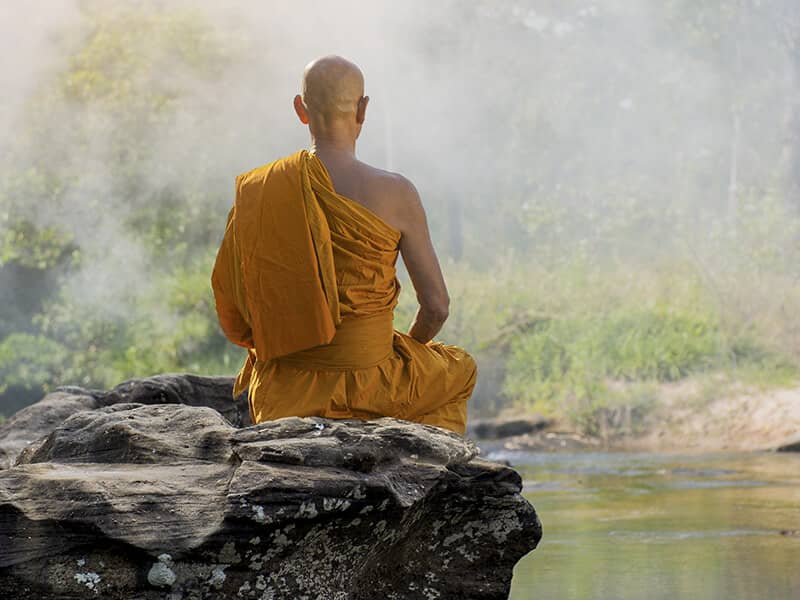A.: Forgiveness does not mean forgetfulness. I often counsel my Buddhist students not to forgive and forget, but to forgive and remember. This will help us to open our Buddha-like heart and mind; find inner peace, contentment, and self-acceptance; and learn to love life much more fully, just as it is.
Who is it hardest for you to forgive? If you would scrutinize your heart and psyche, would you find a list of people and things you have difficulty putting behind you? You might want to consider working on this sometime as part of your ongoing "higher education" or spiritual evolution.
Each resentment we harbor or grudge we bear is like extra baggage we carry around day after day--long after those who have wronged us are gone from our lives. It is in our own higher self-interest to be able to release some of those burdens.
Too often our deepest pockets of hurt and self-loathing are directed at ourselves. In order to start the process of forgiveness, we need to begin by being willing to make friends with ourselves; to do so, we must cultivate a soft, kindly, gentle and spacious, accepting, non-judgemental attitude. When we practice lovingkindness and compassion meditation in the Buddhist tradition, we begin seeing ourselves as we are and generating benevolent, generous, well-wishing thoughts towards ourselves, without trying to change or improve anything; only then do we start to spread those warm feelings out to others, in ever-widening concentric circles.
This kind of mind training or attitude transformation can help us to learn a great from our difficult experiences. We can make lemons into lemonade, as the saying goes; we can turn stumbling blocks into stepping stones on the path of conscious growth and inner development. Where would we be without our wounds? Where would our power of compassion, empathy, and understanding come from? We all experience some bad karma sooner or later; but even bad karma can help us become more sensitive to the plight of others, and contribute to their well being. At the very least it can help us to feel that no one wants inflicted upon them what we ourselves dislike and wish to avoid, a poignant realization that can vastly further strengthen our own compassionate altruism and nonviolence.
I personally have found that the most painful of life's experiences are often the most growthful in that they precipitate personal transformation, if taken with both insightful wisdom and a friendly, compassionate spirit. My favorite Buddhist virtues are Patient Forbearance and Perseverance, and Courageous Acceptance. They help me befriend all the parts of myself and all various facets of life, both pleasurable and painful. Cultivating these inner strengths within my own heart and mind brings indescribable peace, balance, and harmony into my life and all my relations, and provides a still center within me that is like a sanctuary or refuge amidst the vicissitudes of this chaotic world.
We must learn how to work with all kinds of disappointments, losses, griefs, and suffering in life; how we relate to them makes all the difference. Timeless wisdom tells us that it is not what happens to us that determines our character, our karma, and our destiny, but what we do with what happens to us that determines who we are to be and what kind of life we actually have.
We all have plenty of life experiences. However, some of us just rush headlong from one to another as if life is not much more than a "to do" list. Without much reflection upon the meaning and lessons of our experiences, and without integrating this "higher education" into our lives, we cannot develop our capacity to be wise elders. Without reflection or introspection, we run the risk of squandering ourselves and becoming little more than a weary old fool.
The Buddha said:
"Do not pursue the past.
Do not lose yourself in the future.
The past no longer is.
The future has not yet come.
Looking deeply at life as it is
in the very here and now,
the practitioner dwells
in stability and freedom."

